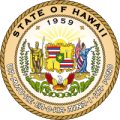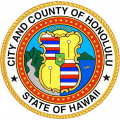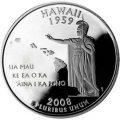Hawaii offers a variety of educational options for either entering the nursing profession or furthering your pursuits within the field. For existing nurses who'd like to earn a higher salary, both the University of Hawaii and Hawaii Pacific University offer master's degrees and doctoral programs which prepare graduates to practice as one of the state's 200 nurse practitioners. NPs in Hawaii earn an average salary of $103,000 per year.
Hawaii
We've organized a comprehensive list of Hawaii nursing schools. Below you'll find information on specific nursing programs such as LPN certificates and ADN, BSN, and MSN degrees. You'll also find a profile of nursing education and careers in each major Hawaii city.
City-specific information
Nurses have become critical to the healthcare system in Hawaii, taking on many of the responsibilities that have traditionally been entrusted to doctors. With the medical community relying more and more on nurses, and the need for healthcare on the rise, nursing has become a profession in high demand. In Honolulu, there are plenty of opportunities for nurses at all levels. Given the increasing responsibility in the field, it is essential that aspiring nurses have the best training available.
Certified nursing assistant (CNA)
Many registered nurses (RNs) choose to continue their studies by pursuing master of science in nursing (MSN) degrees. The MSN is a postgraduate degree that gives nurses the qualifications required to become health policy experts, public health workers, educators, nurse administrators, clinical nurse leaders, and more. MSN programs also allow nurses to pursue careers as nurse practitioners (NPs), nurse midwives, or nurse anesthetists, specialty fields that give nurses more responsibility in the workplace and confer significantly higher salaries.
The best educational option for aspiring registered nurses (RNs) is the bachelor of science in nursing (BSN) degree. Although it is possible to become an RN through a two-year associate’s degree program, it is becoming increasingly important to earn a BSN degree to remain competitive on the job market. BSN programs generally take four years to complete, giving each student a comprehensive nursing education that includes courses in hard sciences, such as biology and physiology, and hands-on training through supervised clinical trials.
If you aspire to become a registered nurse (RN), it could be worthwhile to consider pursuing an associate’s degree in nursing (ADN). Associate’s degrees in nursing only take two years to complete, and programs are offered at most community colleges. This makes the ADN the quickest and most affordable way to launch your career as an RN.
Today, licensed practical nurses (LPNs) are essential to the healthcare system. They assist physicians and registered nurses (RNs) in a number of organizational tasks, and provide for basic patient care and comfort, monitoring symptoms, changing bandages, administering medications, and keeping doctors apprised of any changes in a patient’s condition. LPNs also help to oversee a team of nursing assistants and support staff.
Before you balk at the tuition of Hawaii's most expensive universities, bear in mind that students pay roughly half of list price on average due to various grants and financial aid. Other expenses can add up quickly, however, so it's best to have a full view of the financial costs ahead of time.
Looking for the most elite universities in Hawaii? When you're paying significant money for your education, there is no point in settling for less. Private universities are in business to excel. Many are supported by alumni and other private donors, and they work hard to maintain their high standards and reputations. After all, the prestige of these universities is why students knock on their doors in the first place.
US public, or state, universities are usually seated on large campuses, and for good reason. If the whole state could receive a good education within its borders, state universities would consider their mission accomplished. Local state or county residents, who often fund these colleges with their tax dollars, have first preference during the admissions process and a lower tuition bill.
Hawaii offers a variety of educational options for either entering the nursing profession or furthering your pursuits within the field. For existing nurses who'd like to earn a higher salary, both the University of Hawaii and Hawaii Pacific University offer master's degrees and doctoral programs which prepare graduates to practice as one of the state's 200 nurse practitioners. NPs in Hawaii earn an average salary of $103,000 per year.









